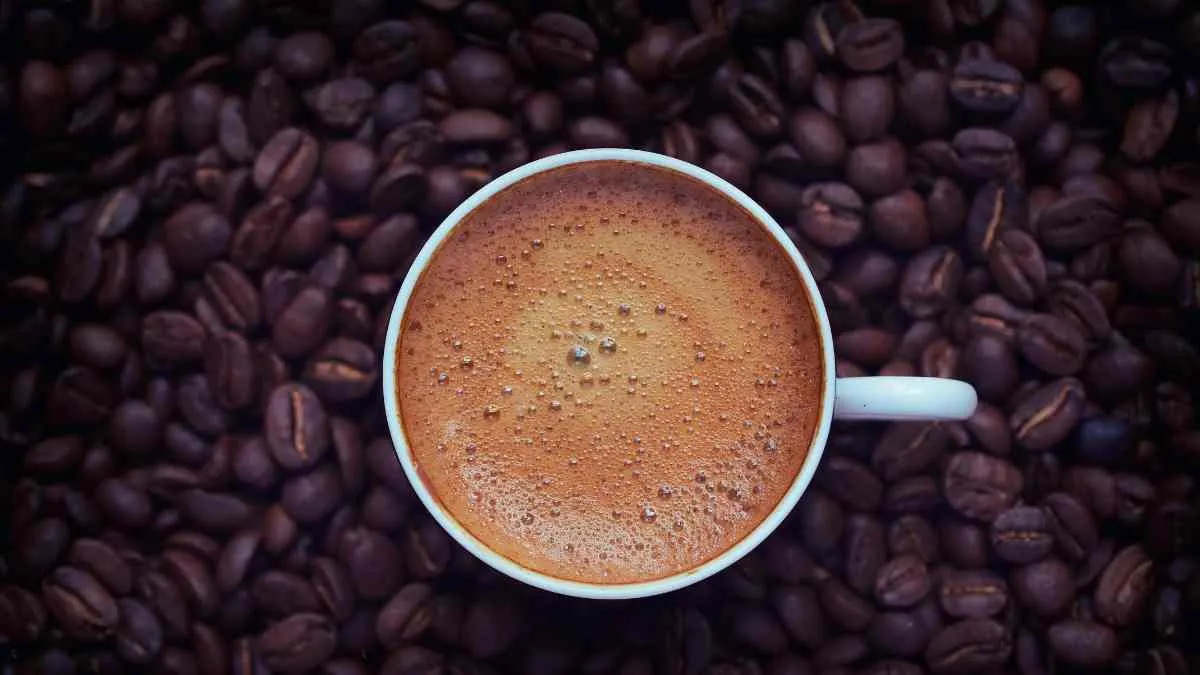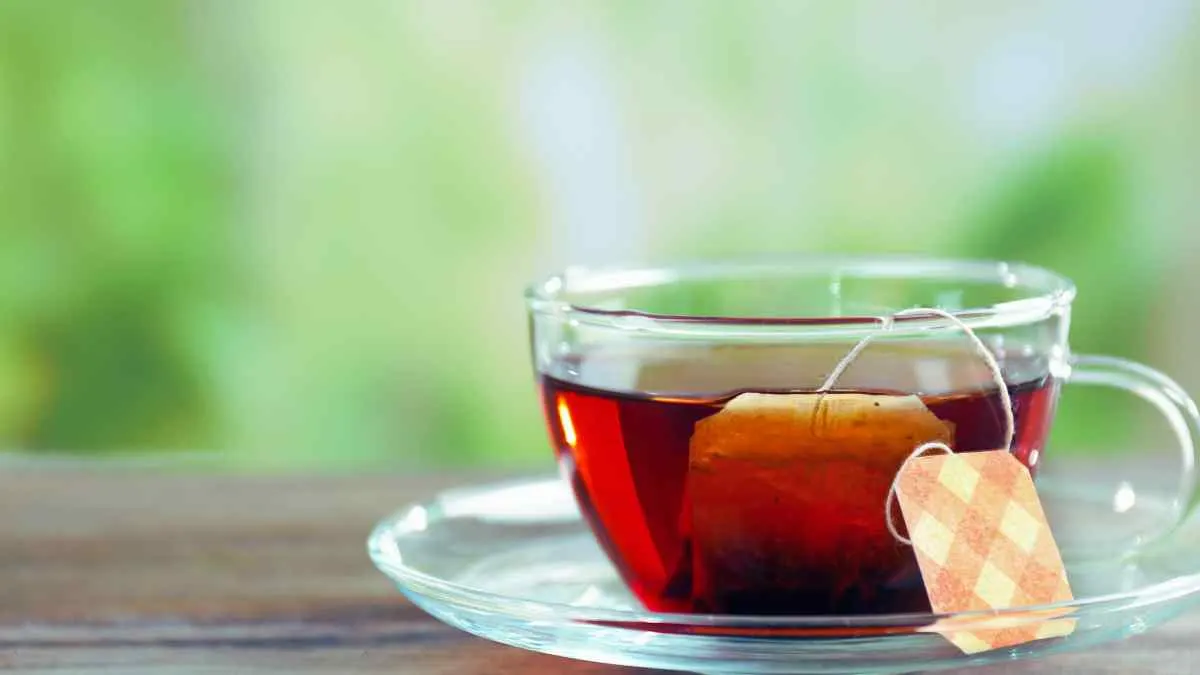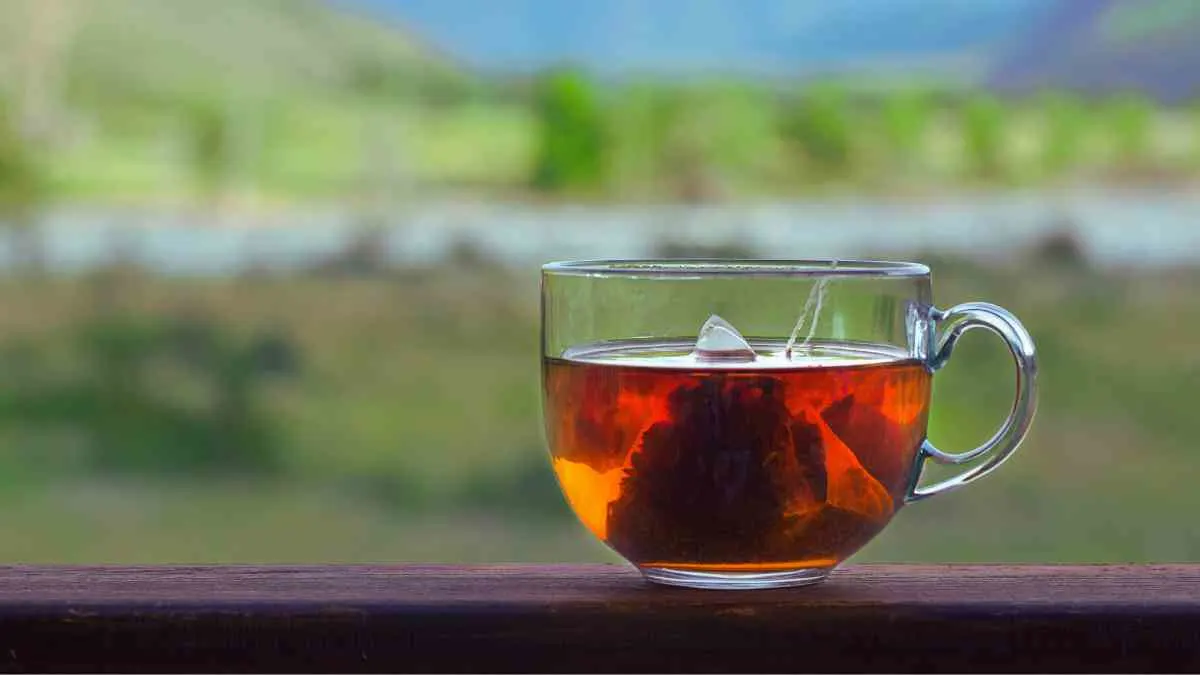Does black tea have more caffeine than coffee?
Both beverages are beloved around the world for their stimulating effects, but how do they compare in terms of caffeine?
Both black tea and coffee, shedding light on the differences and helping you choose the right beverage based on your caffeine preferences.
Lets go.
Caffeine Content | Black Tea vs. Coffee:
Caffeine is a naturally occurring stimulant found in both coffee and tea. It works by stimulating the central nervous system, helping to keep you alert and awake.
While both beverages are rich in caffeine, their caffeine content varies widely, and understanding this difference can help you make more informed choices.
A) Caffeine in Coffee

Coffee, generally speaking, contains more caffeine than black tea. An 8-ounce cup of coffee typically contains around 95-200 milligrams of caffeine, depending on factors such as brewing method and type of coffee bean used.
For example, coffee made from Arabica beans generally contains around 95 milligrams of caffeine per 8 ounces, while Robusta beans contain much higher amounts, up to 200 milligrams for the same serving size.
Espresso, a more concentrated form of coffee, contains significantly higher caffeine per ounce. A single shot of espresso, typically 1 ounce, contains around 63 milligrams of caffeine, which is higher than regular brewed coffee on a per-ounce basis.
According to the National Coffee Association (NCA), the brewing method also plays a crucial role in the caffeine concentration. For example, French press coffee extracts more caffeine due to the longer brewing time, while cold brew coffee tends to be more potent due to the extended steeping process.
B) Caffeine in Black Tea

When comparing black tea to coffee, black tea generally contains less caffeine. An 8-ounce cup of black tea contains between 40 to 70 milligrams of caffeine. While this is a lower amount than coffee, it still provides an energy boost, making it a popular choice for those who enjoy a gentler stimulant.
According to the Tea Association of the USA, the caffeine content in black tea can vary depending on factors such as the type of tea leaves, brewing time, and water temperature. Assam tea, for example, typically contains more caffeine than Darjeeling tea, which is known for being lighter in flavor and caffeine content.
Which One Packs More Caffeine?
In general, coffee has significantly more caffeine than black tea. However, various factors like brewing time, temperature, and bean or leaf variety can influence the caffeine content of both drinks.
In many cases, a strong cup of coffee can have nearly three times the amount of caffeine found in an average cup of black tea.
Recommended: Does Tea Keep You Awake More
Does Black Tea Have More Caffeine Than Coffee?
The caffeine content in both coffee and black tea is influenced by several key factors, and understanding these can help you get the most out of your favorite beverage.
1. Type of Coffee Beans
As mentioned, coffee beans come in two main varieties: Arabica and Robusta. Arabica beans tend to be milder in flavor and contain less caffeine, averaging about 95 milligrams of caffeine per 8-ounce cup. In contrast, Robusta beans have almost twice the caffeine content, offering up to 200 milligrams per 8-ounce serving. Choosing a coffee made with Robusta beans will generally give you more caffeine.
2. Brewing Method for Coffee
The brewing method plays a major role in the caffeine content of your coffee. For example:
-
Espresso: Contains 63 milligrams of caffeine per ounce due to the high-pressure brewing process.
-
French press: This method uses more coffee grounds and steeping time, which leads to a stronger, more caffeinated cup.
-
Drip coffee: Regular drip coffee usually contains about 95 milligrams of caffeine per 8 ounces.
-
Cold brew: Cold brew coffee tends to have a higher caffeine content because of the longer brewing time, sometimes containing more caffeine than hot brewed coffee.
3. Type of Black Tea
The type of black tea also plays a role in caffeine content. Assam tea, for example, tends to have more caffeine than Darjeeling tea. The region where the tea is grown, as well as the processing method, affects how much caffeine is in the leaves.
Tea leaves from younger plants or newer harvests tend to have more caffeine than older leaves.
4. Brewing Method for Tea
The way you brew your tea also affects its caffeine content. For black tea, the standard steeping time is between 3 to 5 minutes, using water just below the boiling point (about 200°F or 93°C).
The longer you steep the tea, the more caffeine will be extracted from the leaves. If you steep your tea for just 1 to 2 minutes, it will have a lower caffeine content.
5. Water Temperature
Water temperature is another crucial factor. The hotter the water, the more caffeine will be extracted from the tea leaves. If you use water that’s too hot, you might end up with a bitter taste.
The ideal water temperature for black tea is between 200°F (93°C) and 212°F (100°C). For coffee, water temperature should be around 195°F to 205°F (90°C to 96°C) to ensure optimal extraction.
Health Benefits of Black Tea vs. Coffee:
Both black tea and coffee offer numerous health benefits, thanks to their high antioxidant content.
-
Black Tea: Rich in flavonoids, black tea has been linked to improved heart health, better brain function, and enhanced fat metabolism. Studies show that drinking black tea can help reduce the risk of stroke and heart disease. It also has L-theanine, which helps to calm the mind and reduce stress, providing a smoother energy boost compared to coffee.
-
Coffee: Coffee is loaded with chlorogenic acid, a powerful antioxidant that helps reduce oxidative stress in the body. Studies suggest that drinking coffee regularly may help lower the risk of type 2 diabetes, Parkinson’s disease, and Alzheimer’s disease. Additionally, coffee has been shown to improve physical performance and mental alertness due to its caffeine content.
Moderation Is Key:
While both beverages have numerous health benefits, excessive consumption of caffeine can lead to negative side effects, including anxiety, insomnia, and digestive problems. It’s essential to enjoy these drinks in moderation, based on your individual tolerance levels.
FAQs:
1. Can I Drink Black Tea to Stay Awake Like Coffee?
Yes, black tea can provide an energy boost, though not as strong or fast as coffee. If you’re sensitive to caffeine or just need a gentler boost, black tea is a great alternative to coffee.
2. Does the Type of Black Tea Affect Caffeine Levels?
Absolutely. Different types of black tea, such as Assam and Darjeeling, have varying caffeine levels. Assam tea, for example, has more caffeine than Darjeeling tea. The processing method and growing conditions also impact caffeine content.
3. Can I Increase the Caffeine Content of My Black Tea?
Yes, you can increase the caffeine content by steeping your black tea for longer or using more tea leaves per cup. However, longer steeping times may also result in a more bitter taste.
4. Is Coffee Better for Energy Than Black Tea?
In terms of pure caffeine content, coffee provides a stronger and quicker energy boost than black tea. However, if you prefer a more sustained and less jittery boost, black tea might be the better option.

